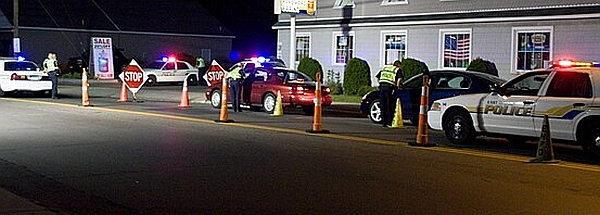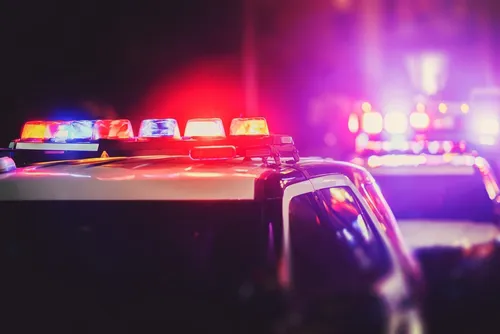Driving under the influence (DUI) is a serious offense that can lead to severe consequences. To combat this issue, law enforcement agencies in North Carolina regularly set up DUI checkpoints to deter and catch offenders. However, there are specific rules and regulations that must be followed during these checkpoints.
An Asheville DUI lawyer knows that even the police must play by the rules. When they don’t, the DUI charges they file against you may be dismissed. In this article, we’ll discuss everything you need to know about DUI checkpoints in North Carolina so you know your rights and obligations.
The Location of DUI Checkpoints Must Be Announced
In North Carolina, law enforcement agencies must announce the location of DUI checkpoints in advance. This means that they cannot randomly set up a checkpoint without informing the public beforehand.
Announcements about DUI checkpoints can be made via various mediums such as local news outlets or social media platforms. By doing so, drivers are aware of where these checkpoints will occur and can make plans accordingly.
However, it’s important to note that law enforcement does not have to disclose the exact time of when they will set up a checkpoint. Announcements only need to provide information on the general area or roadways where the checkpoint will take place.
DUI Checkpoints Must Have a Purpose
DUI checkpoints aren’t a random occurrence, they are carefully planned and designed to achieve a specific goal. The purpose of DUI checkpoints is to deter drunk driving and catch those who are driving under the influence. These checkpoints can be set up anywhere, but there must be a reason for their placement.
The reason behind setting up a checkpoint could be due to an increase in alcohol-related accidents or fatalities in the area. It’s important that law enforcement agencies have data-driven reasons for setting up these checkpoints, as it gives them more authority when enforcing DUI laws.
DUI checkpoints must also adhere to certain guidelines and procedures, including having properly trained officers on site and following protocol for stopping vehicles. This ensures that the checkpoint is effective at achieving its intended purpose without infringing on citizens’ rights.
The Check Must Be at Random
One of the most important aspects of a DUI checkpoint is that it must be random. This means that law enforcement officers cannot target specific drivers or vehicles based on:
- appearance
- race
- ethnicity
- any other discriminatory factor.
The purpose of DUI checkpoints is to deter impaired driving and ensure public safety, not to discriminate against certain individuals.
To ensure that checkpoints are truly random, law enforcement agencies should establish clear guidelines for selecting which vehicles will be stopped. For example, they may use a predetermined formula such as every third car or every fifth car that passes through the checkpoint.
It’s also essential that officers follow these guidelines consistently and avoid making exceptions for any reason. If they deviate from established procedures and stop only certain types of drivers or vehicles, it could undermine the legitimacy of the entire operation.
By maintaining randomness in DUI checkpoints, law enforcement can help prevent impaired driving while safeguarding individual rights and preventing discrimination.
There Must Be Visible Notices for DUI Checkpoints on the Road
If you’ve ever driven down a major road at night, chances are you’ve come across a DUI checkpoint. While these checkpoints may seem like an inconvenience, they serve as an important tool for law enforcement to keep intoxicated drivers off the roads.
However, in North Carolina, there are specific requirements that must be met in order for DUI checkpoints to be legal. One of these requirements is that there must be visible notices for the checkpoint on the road.
These notices can take many forms – from flashing lights and signs announcing “DUI Checkpoint Ahead” to police cars with their lights on parked along the side of the road. The purpose of these notices is to inform drivers that they will soon encounter a checkpoint so they have time to prepare themselves mentally and physically.
By providing visible notice of DUI checkpoints, law enforcement ensures that drivers are aware of what’s coming up ahead and can make informed decisions about how best to proceed. This not only helps prevent drunk driving but also protects motorists’ rights by ensuring they aren’t caught off guard when approaching a checkpoint.
So if you do happen upon a DUI checkpoint while driving in North Carolina, remember: it’s not meant to inconvenience you – it’s meant to keep everyone safe on the roads!
Can You Turn Around to Avoid DUI Checkpoints?
One common question that people ask about DUI checkpoints is whether they can simply turn around and avoid them. The answer to this question is not straightforward, as it depends on the circumstances.
Firstly, it’s important to note that avoiding a checkpoint by making a U-turn or turning onto another road could be seen as suspicious behavior by law enforcement officers. This may result in getting pulled over anyway, which defeats the purpose of trying to avoid the checkpoint.
It’s worth noting that even if you do manage to avoid a DUI checkpoint without getting caught or pulled over by law enforcement officials, you still run the risk of being arrested for drunk driving if you are found to be impaired while operating your vehicle elsewhere.
The bottom line is that trying to evade a DUI checkpoint isn’t recommended. It’s always best to comply with any requests made by law enforcement officers at these checkpoints and take steps beforehand – such as designating a sober driver – so you don’t end up facing serious criminal charges related to drinking and driving.
Trying to Avoid a Checkpoint Results in Losing the Protection of the 4th Amendment
Additionally, attempting to evade a DUI checkpoint could have legal consequences. In North Carolina, if an officer has reasonable suspicion that someone is driving under the influence and they attempt to flee from a checkpoint, they may lose their Fourth Amendment protection against unreasonable searches and seizures.
If you come across a DUI checkpoint while driving, it is recommended that you comply with the officer’s requests. Trying to avoid the checkpoint by turning around or taking an alternate route may result in losing your protection under the 4th Amendment.
Contact an Experienced Asheville DUI Lawyer to Protect Your Rights!
If you have been charged with a DUI as a result of being stopped at a checkpoint, it is important to seek legal representation from an experienced Asheville DUI lawyer who can help protect your rights and defend against these charges.
Do not try to fight this battle on your own or try to trick the police officers – they know all the tricks in the book. Instead, remain calm, cooperate with the law enforcement officers, and get in touch with a skilled Asheville DUI lawyer.
Every new client gets a free case review, so you don’t have to worry about legal fees. Make the most of the phone call you are entitled to and contact Asheville DUI Guy!





